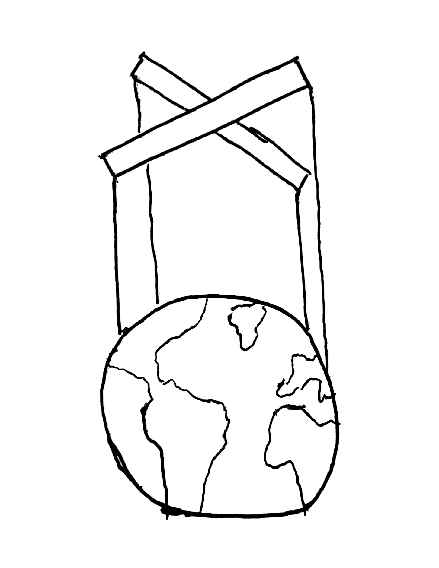In the 1600s (and still today), men were worried about God. Whether or not they were subservient to him. Whether or not he existed. Whether or not they would be cursed for having even doubted his existence.
Blaise Pascal was one of these men. Filling up almost the entirety of his book Pensees, Pascal writes on his descent into asceticism and his undying belief in God, most notably through his most famous theory–Pascal’s Wager.
Pascal’s Wager is most often displayed by this grid:
| God exists | God does not exist | Belief | Sent to Heaven | Nothing | Non-Belief | Sent to Hell | Nothing |
If one believes God exists, and he does, then they will be rewarded by being sent to heaven and achieving the eternal pleasure that comes with it. If one does not believe God exists, and he actually does, then they’ll be sent to hell, with eternal suffering as a byproduct, of course. And if God did not exist, regardless of their belief, nothing would happen–their life would be unaffected by the consequences of their beliefs.
Take note: Pascal’s Wager is not a proof of the existence of God. It’s a justification of why Pascal believes in God. It’s his proving to himself that he’s right to do so, and that others should follow him in his beliefs.
And thus, the “wager” is not just an infamous philosophical stunt to promote religion in a stigmatized era. It’s a framework for understanding why people believe what they do, and the decisions they make that lead to these beliefs.
Let’s take a very simple example to explain this: deciding whether or not to like/support someone (your partner, famous musician, political leader, etc.)
Here’s what your “wager” would look like:
| Good Person | Bad Person | Like | social harmony, get along well, desire to spend more time/support | harmful behavior, being deceived | Dislike | missed opportunities for friendship/support, social discord | avoiding deception, opposing harmful relationships/toxic behavior |
When it’s laid out like this, and the benefits and drawbacks of our decisions are clarified, it’s easy to see how one could buy into the wager. How one might speak highly of a creator based off of the social clout it might bring them. How one might support a political candidate due to their perceived drawbacks of not supporting them.
Understanding this process, this gamble we subconsciously partake in sheds light not just on our personal relationships or political allegiances, but on the very fabric of human decision-making–a lens through which we can examine the "wagers" we make daily. From the simple to the complex, our choices are shaped by our own calculations of potential outcomes, which of course, are colored by our biases and reinforced by our desire for consistency.
Another note: Pascal’s wager was relatively binary. Consequences were set either way, and his wager was definitive to how he lived his life. On the other hand, our wagers are fluid, constantly shifting with new information and experiences. We're not making a single, eternal choice, but rather navigating a sea of ongoing decisions, shaping our reality, our narratives, our truths we live by.
The wager, then, isn't just a decision-making framework - it's a lens through which we very literally view the world. Each bet we place, each opinion we form, each allegiance we pledge, becomes a brick in the edifice of our worldview. Like most masons (hopefully), we tend to choose bricks that fit neatly with the ones we've already laid.
And this is where the true power - and downfall - of the wager reveals itself. It's not merely about making choices, but about how those choices cyclically shape our perception of the world around us, each decision strengthening our convictions and coloring our interpretation of new information. We become invested in our bets, not just emotionally and conversationally, but cognitively as well. To admit we've wagered wrongly isn't just to accept a loss, but to risk unraveling our very understanding of the world around us. This is why changing minds - our own or others' - can be such a Sisyphean task. We're not just arguing facts; we're challenging the wagers that form the foundation of one's worldview.
When it comes to decision-making and friendships, we're all gamblers with one another, placing our bets and hoping for the best.
But are we even aware of the game we're playing?
| 
